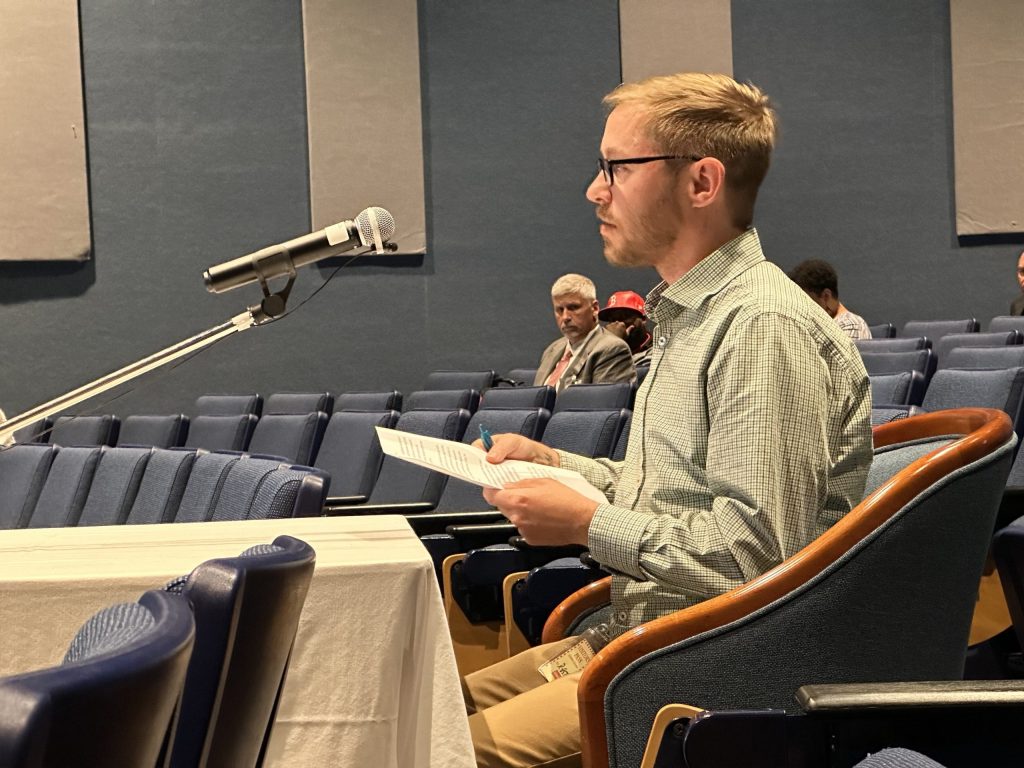Front Porch Blog
Late afternoon on Friday, May 30, President Donald Trump released his proposed fiscal year 2026 government funding budget, which includes steep cuts that would have serious consequences for Appalachians and people in coal communities across the country if enacted.
The proposal kicks off the congressional funding process for “discretionary” spending known as appropriations, and the final budget could look different by the funding deadline in September.
(Note that this is different than the budget reconciliation bill, “the One Big Beautiful Bill Act,” which relates to “mandatory” spending rather than “discretionary” spending, and only needs 51 votes to pass the Senate. Unlike the reconciliation bill, the government funding bill for discretionary spending needs 60 votes to pass in the Senate.)
This is the first of two blogs highlighting some of the ways that the proposed budget would make Appalachians less safe and less financially secure, undercutting economic development and environmental remediation efforts. In this first blog, we focus on proposals specific to coal mining communities; in the second blog, we’ll focus on broader impacts.
Mine Worker Health and Safety
When miners go to work, they and their families deserve to feel confident that they will return home safe and healthy. Unfortunately the president’s budget would reduce funding for the Mine Safety and Health Administration, the agency tasked with keeping miners of all types safe from accidents and illnesses.
Specifically, the Trump administration has requested to reduce funding by $40 million compared to this year’s funding levels, down to $348 million — paling in comparison to the $438 million requested by the agency in recent years.
Mining is a dangerous job, and in addition to risks from heavy equipment, underground work and explosions, miners also must worry about developing black lung disease, which has been on the rise in Appalachia in recent decades.
To address the rise in black lung and protect coal miners from the disease, in 2024 MSHA finalized a rule to limit miners’ exposure to dangerous silica dust — the rule was supposed to go into effect this past April. The Trump Administration delayed the rule’s implementation until August, citing staffing concerns across federal agencies caused by layoffs conducted by the administration itself.

Once the rule finally takes effect, it will be crucially important that MSHA have the staff necessary to work with coal companies to make sure they comply with the rule. MSHA has had difficulty retaining staff in recent years, employing fewer mine inspectors today than a decade ago.
The National Institute for Occupational Safety and Health is another agency that houses critical work related to miner health and safety. For example, NIOSH studies black lung disease trends, provides health services to coal miners with the disease and advises MSHA on ways to improve coal mine safety. NIOSH also runs the Coal Workers’ Health Surveillance Program, a congressionally mandated program that carries out some of this work. It’s the only entity that can approve coal miners with early stage black lung for a program that allows them to transfer to a different coal job where their black lung disease will not advance as quickly.
The president and Health and Human Services Secretary Robert F. Kennedy Jr. have proposed combining multiple agencies, including NIOSH, into a new department called the Administration for a Healthy America. It’s unclear in the proposed budget how the congressionally mandated coal workers’ health program that does mobile black lung screenings and other services for miners would be funded, especially because hundreds of workers have been fired from the agency.
Coal Mining Community Health and Safety
Active, closed and abandoned coal mines can put surrounding communities at significant risk from issues such as water pollution, landslides, methane gas emissions and more. The budget proposal also includes a $15 million cut to the Office of Surface Mining Reclamation and Enforcement, the agency responsible for ensuring coal mines are operated and maintained in such a way to minimize the impact on the surrounding people and environment.
This budget takes the agency down to an annual budget of $101 million, less than a third of what coal mining community advocates have identified is needed to ensure health and safety protections.
Within that budget proposal, the Trump administration is also proposing significant cuts to the amount of funding state agencies receive to run their state mining and reclamation programs, money that is used for permitting, enforcement of health and safety protections, and making sure mines are properly cleaned up.
The president’s proposed budget cuts the total amount of funding available to states for their programs, meaning states will have less money for permitting and enforcing environmental protection laws. The funding level for states’ mining programs has declined every year since FY2022, at the same time state budgets are under increasing pressure from inflation and decreasing revenue from mining fees.
State agencies have advocated for the federal funding level to be $77 million; the president has proposed a budget of $52.4 million. If state agencies don’t receive enough money from the federal government to keep their programs running, states may decide they can no longer afford to administer their own programs and revert control back to the federal government.
Regardless of whether states choose to maintain control of their coal mining programs, the administration’s proposal for OSMRE would mean less money for ensuring adequate protections for coal mining communities.
PREVIOUS
NEXT

Leave a comment
Your email address will not be published. Required fields are marked *

Leave a Comment